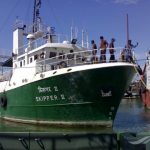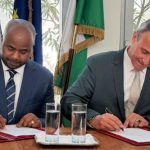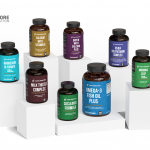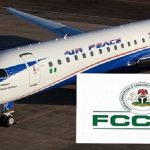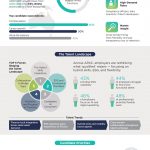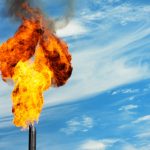Banking
S&P Expects Growth in Ecobank’s Profits, 40% Dividend Payout
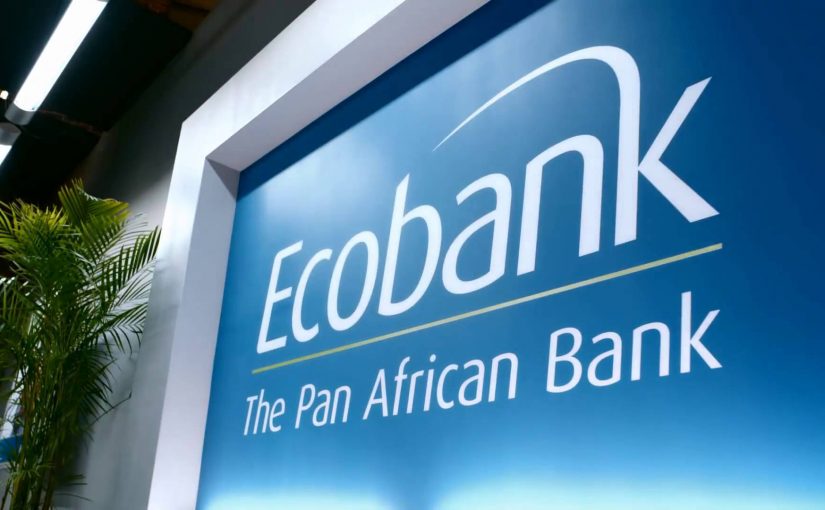
By Dipo Olowookere
Globally recognised rating agency, Standard and Poors, has said it foresees the stable operating conditions of Togo-based Ecobank Transnational Incorporated to help it achieve its revenue growth prospects.
In a statement issued recently to announce the affirmation of ‘B-/B’ and ‘B/B’ long- and short-term issuer credit ratings the lender and its Nigerian subsidiary, Ecobank Nigeria Ltd, S&P pointed out that the diverse shareholder structure of the pan-African lender, combined with its strong management team, will ensure the group’s adequate positioning and enable it to benefit from the supportive economic conditions in the West African Economic and Monetary Union (WAEMU), its largest market, improving economic conditions in Ghana, and more stable conditions in Nigeria.
According to the agency, the ratings reflects its view that Ecobank’s strong pan-African footprint and strengthened management and governance will support its profitability going forward, adding that this is balanced against the group’s constrained asset quality indicators and capital position.
“We think its unique pan-African franchise has attracted a stable base of institutional investors, including Nedbank, Qatar National Bank and South Africa-based Public Investment Corporation, which have positively affected the group’s corporate governance and risk management. We believe the International Finance Corporation’s sale of its 14.1% stake to Arise Invest B.V. reflects continued interest from global investors in Ecobank group and will further support the group’s broader business stability,” the statement obtained by Business Post said.
Ecobank group benefits from a sizeable customer base (19 million as at June 30, 2019) and a strong competitive position in its core markets, ranking among the top three banks in 14 of the countries in which it operates. This wide franchise will continue to support the group’s stable and diversified funding base and low cost of funds, which compare favorably with regional peers. The group’s subsidiaries are primarily funded with short-term deposits (88% of the funding base), comprised of retail and nonfinancial corporate current and savings accounts, S&P said.
“We expect loan growth to resume within the next 12 months. This, in conjunction with higher nonoperating revenue and reduced cost of risk compared with prior years, will support earnings growth.
“We expect the bottom line figures to improve, in conjunction with the continued retention of 100% of net profits until 2020, after which we expect a dividend payout of approximately 40% of net profit.
“This will help improve capitalization slightly and should lead to an average risk-adjusted capital (RAC) ratio before diversification of 3.5% in 2019-2021, up from 3.1% at year-end 2018.
“The group’s subsidiaries are all compliant with their respective minimum capital adequacy as prescribed by their respective regulators. More specifically, following the $150 million recapitalization of Ecobank Nigeria in 2018/2019, we note that its capital adequacy ratio has increased to 16.2% as of June 30, 2019.
“We understand the bank’s capitalization requirements currently do not incorporate the additional 1% domestic systemically important bank (D-SIB) buffer above its 10% minimum capital adequacy ratio. We estimate the group has sufficient capital to meet the additional requirement if the Central Bank of Nigeria introduces the measure in 2020,” the statement said.
It stressed that, “The need to inject capital at Ecobank Nigeria, stemming from the naira devaluation, the $250 million effect of International Financial Reporting Standards 9 (IFRS 9), and additional outlays for regulatory compliance, resulted in double leverage increasing to 150% at year-end 2018, from 114% in 2017.”
“We consider this ratio very high, however, we believe that this risk is adequately covered by available foreign currency liquidity of approximately $600 million. We forecast double leverage will reduce to 130% by 2019 and below 120% by 2020, in line with management’s targets, on the back of increased dividends and cash flows from its subsidiaries.
“The outlook on Ecobank Nigeria and ETI is stable, reflecting our expectation that the group’s asset quality and financial performance will gradually improve over the next 12 months. The outlook also incorporates our expectation that the group would maintain adequate liquidity at the holding company level in response to its high double leverage.”
“We would lower our ratings on Ecobank Nigeria if we took a similar rating action on Nigeria (B/Stable/B). We would also lower our ratings if we considered the Nigerian subsidiary less core to the group due to prolonged weaker financial performance.
“We would lower the ratings on ETI if liquidity buffers that mitigate its double leverage significantly diminished.
“An upgrade of ETI would require, in addition to double leverage reducing to more manageable levels below 120%, a significant improvement in its asset quality indicators or a strengthening of its RAC above 7%. We consider an upgrade of ETI not very likely within our forecast horizon.
“An upgrade of Ecobank Nigeria would require a significant strengthening of the group’s asset quality or capitalization and a similar action on Nigeria,” the statement noted.
Banking
CBN Delists Non-Compliant Bureaux De Change Operators
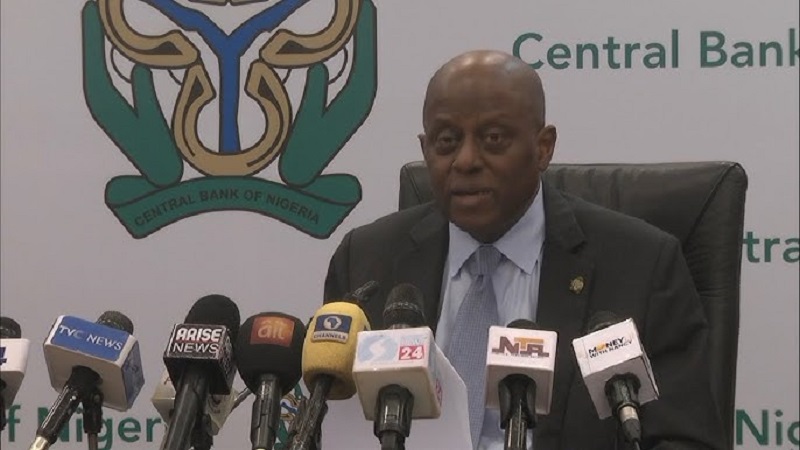
By Adedapo Adesanya
The operating licences of all legacy Bureau De Change (BDC) operators who failed to meet the new licensing requirements have been revoked by the Central Bank of Nigeria (CBN).
This happened after the central bank streamlined the BDCs to 82 in order to sanitise the foreign exchange (FX) market in the country.
The latest development was revealed by the apex bank in its Frequently Asked Questions document on the current reform of the bureau de change, published on its website on Tuesday.
According to the document, the CBN has now enforced the final cutoff, declaring that any BDC that did not meet the requirements by the end of November is no longer recognised.
“The guidelines provided a transition timeline of six months from the effective date, 3 June 2024, with a deadline of 3 December 2024, for all existing BDCs to meet the requirement of the new Guidelines or lose their licence(s). However, the management of the CBN graciously extended this deadline by another six months, which ended 3 June 2025, to give ample time for as many legacy BDCs desirous of meeting the new requirements to do so.
“Consequently, any legacy BDC that failed to meet the requirements of the new Guidelines as of 30 November 2025 has ceased to be a BDC, as its licence no longer exists. Please visit the CBN website for the updated list of existing BDCs in Nigeria,” the apex bank said.
According to the CBN, before its latest decision, an extended compliance window was granted under the revised BDC Guidelines. Existing operators were initially given six months, June 3 to December 3, 2024, to satisfy the new regulatory conditions.
The CBN later granted an additional six-month extension, which elapsed on June 3, 2025, to allow more operators to align with the updated standards.
The new measures form part of broader efforts by the CBN to strengthen transparency, compliance, and stability within Nigeria’s foreign exchange market.
The new CBN regulatory framework for BDCs, introduced in February 2024, mandated BDC operators to meet higher capital requirements. Tier-1 operators are required to meet a minimum capital requirement of N2bn, while Tier-2 operators must meet N500m as MCR.
The bank added that it would continue to receive applications on its Licensing, Approval and Requests Portal from prospective promoters, and those that meet the criteria will be considered for a license.
However, the CBN said it reserves the right to discontinue the licensing of BDCs at any time.
Banking
O3 Capital to Unlock N95bn Festive Spending Boom With Blink Card

By Modupe Gbadeyanka
A non-bank credit card issuer, 03 Capital, has introduced a travel card designed to unlock the N95 billion festive spending boom in Nigeria.
The new initiative, known as the 03 Capital Blink Travel Card, promotes economic participation among returning Nigerians, expatriates, and tourists.
A statement from the financial technology (fintech) firm is available instantly to use at over 40 million merchants and ATMs nationwide.
The Blink Card, to be issued in both digital and physical form, is loaded with currency from any foreign bank card, converted to Naira, enabling transactions to be completed in the local currency.
The card offers tap-to-pay and cash withdrawals at over 40 million merchants and ATMs nationwide, making it the ideal solution for visitors to Nigeria.
It also avails Nigerians in the Diaspora to spend like locals when they return to their country of origin.
Payments for goods and services can be completed via the virtual Blink Card, linked to the O3Cards app. Funds can also be transferred instantly to all local banks and other financial institutions.
According to the World Bank, remittance inflows account for approximately 5.6 per cent of Nigeria’s gross domestic product (GDP), and the resultant spending power is unlocked when the Diaspora returns home for the festive period.
In December 2024, about N95 billion was injected into the Nigerian economy by inbound passengers – 90 per cent being diasporic Nigerians – spending on short-let accommodation and hotels, events and hospitality, nightlife and dining, and vehicle rentals. The launch of the Blink Card promises to spur this spending further, providing a significant boost to local businesses.
Blink Cards are available for collection at all Nigerian international airports, offering an immediate and hassle-free route to financial empowerment for people arriving in the country.
Blink Card carriers benefit from increased convenience, flexibility, and safety by not needing to carry large amounts of physical cash, while the ability to pre-load cards promotes smarter budgeting practices.
“We are excited to launch the Blink Card to promote greater economic participation among visitors to Nigeria.
“The card removes the needless friction and costs involved in legacy foreign exchange and cash payment processes, offering a quicker and more transparent option for spending in the country.
“As Nigerians begin travelling home for Christmas – combined with the regular traffic of arriving tourists, expatriates, and businesspeople – this is the perfect time to launch a solution catering to the financial needs of visitors, tapping into the seasonal spending boom which provides an annual lifeline for local economies and SMEs,” the chief executive of 03 Capital, Abimbola Pinheiro, stated.
Banking
Interswitch Champions Dialogue on Alternative Credit Scoring for Underserved
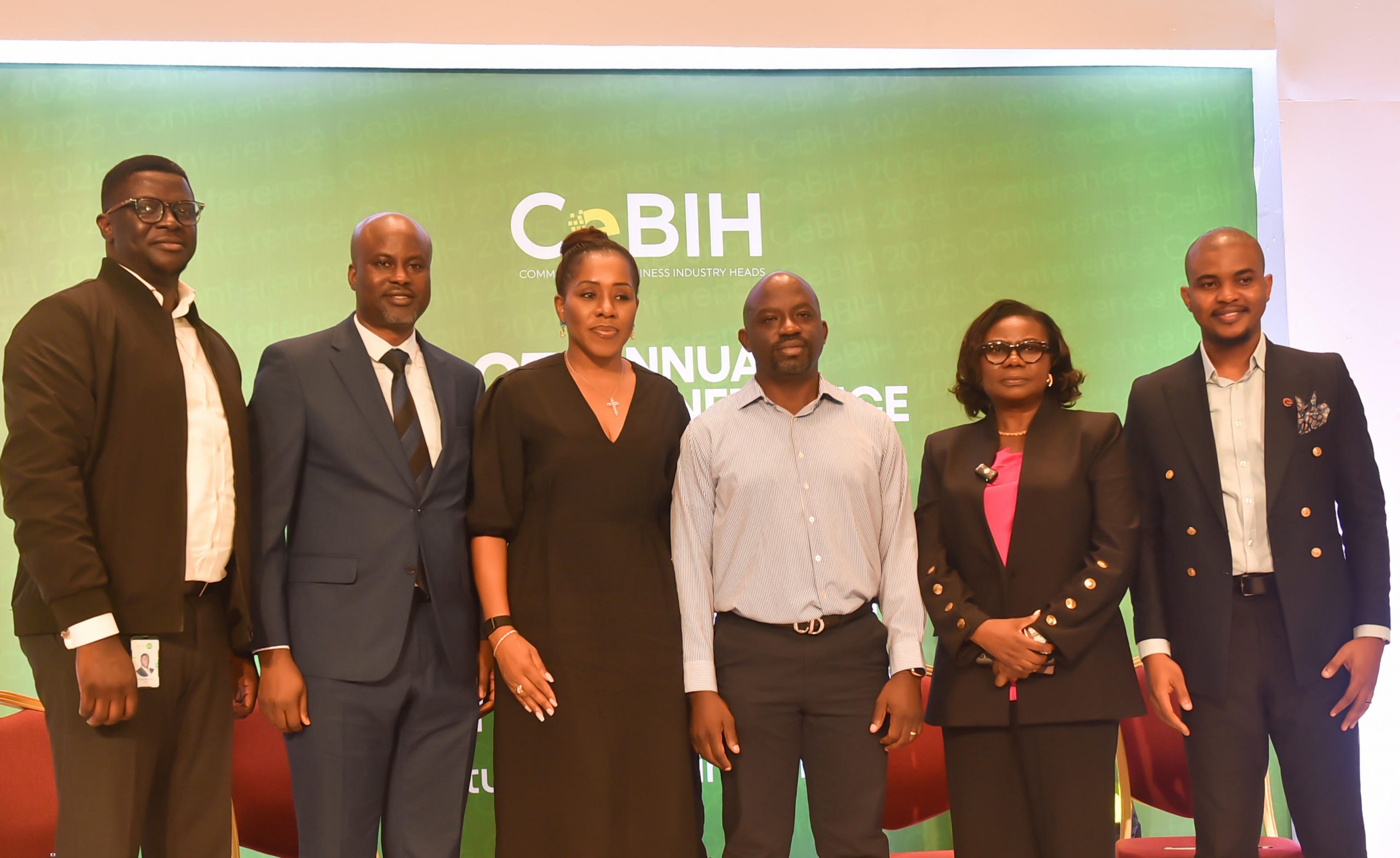
By Modupe Gbadeyanka
Technology leaders from across Nigeria’s digital finance ecosystem recently converged on Eko Convention Centre in Lagos to explore pathways for expanding credit access to underserved communities.
It platform for this was the 2025 Committee of e-Business Industry Heads (CeBIH) Annual Conference themed Reimagining Financial Inclusion through Cultural Shifts in Consumer Credit. Interswitch was a returning gold sponsor.
At a high-impact panel session titled Alternative Credit Scoring for the Underserved, moderated by Wunmi Ogunbiyi of the CeBIH Advisory Council, the Divisional Head of Product Management and Solution Delivery at Verve International, a subsidiary of Interswitch Group, Mr Ademola Adeniran, examined how alternative data and digital intelligence can unlock credit for millions excluded by conventional financial models.
“For us, this conversation goes beyond technology. It is about designing credit systems that truly reflect African realities.
“Millions transact daily outside traditional banking frameworks, and alternative credit scoring enables us to recognise that economic activity and responsibly convert it into access to finance.
“At Verve and Interswitch, we are committed to building the digital infrastructure that makes this inclusion scalable and sustainable,” Mr Adeniran stated.
Also, the Vice President for Sales and Account Management, Digital Infrastructure and Managed Services at Interswitch Systegra, Ms Robinta Aluyi, stressed the importance of African-led solutions in addressing the continent’s financial challenges, noting that sustainable progress must be rooted in local realities.
Interswitch’s strength, she said, lies in the fact that it was built on the continent, for the continent, with solutions designed to serve individuals, small businesses, enterprises, and government institutions across every layer of the payment value chain.
She also emphasized the company’s purpose-driven approach to building the infrastructure that powers Africa’s digital economy and enabling secure money movement on a scale.
“Interswitch helps people navigate their daily lives with greater ease. We make transactions flow safely and reliably. We do this by connecting banks, supporting secure and reliable payments, and strengthening the entire value chain of digital finance.
“Today, we hold a significant portion of the market, and that achievement reflects the deep trust our banking and fintech partners place in our platforms. We continue to deliver because the ecosystem has worked with us every step of the way,” Ms Aliyu said.
There were also contributions from Munachimso Duru, Head, Products, Partnership and Innovation, Afrigopay Financial Services Limited; Damola Giwa, Country Manager, Visa West Africa; Nike Kolawole, representing Aisha Abdullahi, Executive Director, Credit and Portfolio Management, CREDICORP; and Ifeanyi Chukuwekem, Head, Corporate Strategy Department, eTranzact, offering a broad industry perspective on the future of responsible credit delivery.
-

 Feature/OPED6 years ago
Feature/OPED6 years agoDavos was Different this year
-
Travel/Tourism9 years ago
Lagos Seals Western Lodge Hotel In Ikorodu
-

 Showbiz3 years ago
Showbiz3 years agoEstranged Lover Releases Videos of Empress Njamah Bathing
-

 Banking7 years ago
Banking7 years agoSort Codes of GTBank Branches in Nigeria
-

 Economy3 years ago
Economy3 years agoSubsidy Removal: CNG at N130 Per Litre Cheaper Than Petrol—IPMAN
-

 Banking3 years ago
Banking3 years agoFirst Bank Announces Planned Downtime
-

 Banking3 years ago
Banking3 years agoSort Codes of UBA Branches in Nigeria
-

 Sports3 years ago
Sports3 years agoHighest Paid Nigerian Footballer – How Much Do Nigerian Footballers Earn




